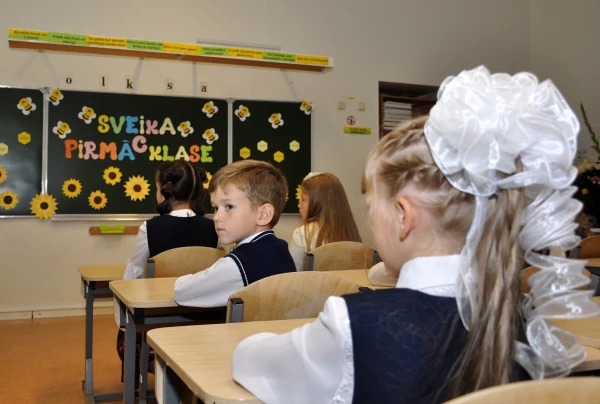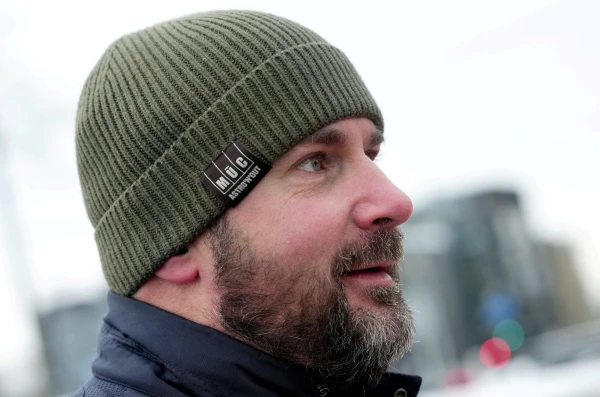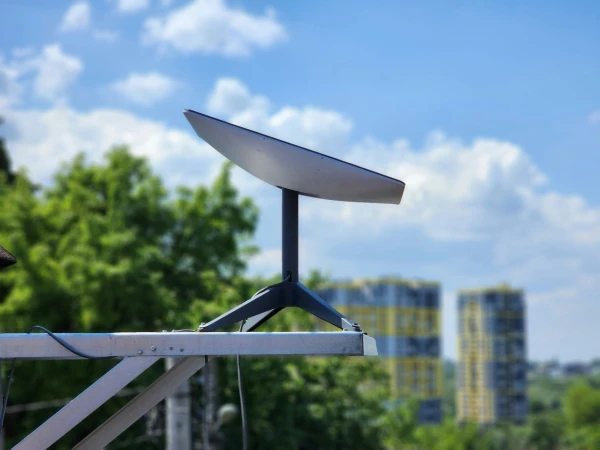
In 20 years, the number of elderly people in need of care in Latvia will double. The state is preparing to change the funding system for this sector. Over the past five years, the amount that local governments pay for the care of adults in care centers has nearly doubled — almost one hundred million euros. Demographic data shows an aging society, which means that caring for the elderly will become increasingly expensive.
The elderly care system — facing new challenges
From 2015 to 2023, the number of residents in Latvia aged 80 and older increased by nearly 17,000. Due to the demographic decline, the number of residents and taxpayers, as well as potential workers in the care sector, is decreasing, creating new risks.
Aldis Dudinš, director of the Department of Social Policy and Disability at the Ministry of Welfare, noted that in 20 years, the number of people in need of care will double in all EU countries. The European Commission has already required member states to think about this in advance, reports LSM.lv.
In Latvia, this is being addressed by both local governments and non-governmental organizations and private companies. Among them is the Latvian Red Cross (LRC), which manages both care centers and home care programs. These services are partially paid for by the elderly themselves or their relatives, and partially by local governments.
"We all know the fairy tale about the sled and the forest, when a person who has lost their strength was taken away to die. How much of this is myth and how much is truth — we do not know. But modern society believes it must care for its members, and we do that," said LRC Secretary General Uldis Likops.
Services are becoming more expensive and complex
There are still places in nursing homes, but many have to wait for local governments to allocate funds. The cost of care is rising not only due to the number of clients but also because the quality is approaching European standards, and the elderly are becoming increasingly difficult to care for. "More and more of our clients are bedridden, with mental disorders, unable to care for themselves," notes Likops.
The main expense is staff salaries. Moreover, due to the increase in life expectancy, people require care for longer, and inflation and rising wages add to the burden.
In some cases, children cover the costs, but for example, Riga does not require independently living children to pay for their parents' care — the legal procedures are too costly. In other local governments, after checking the children's income, it often turns out that they still do not have enough funds.
Sometimes the elderly refuse to move to a nursing home to help their children. "Sometimes, children live off their parents' pensions. And when the elderly become bedridden, we are forced to intervene and relocate them to an institution," says Janis Antanevich, head of the social department of Gulbene County.
He admits that in such situations, his hands tremble with anger: relatives do not care for their parents. It is especially difficult when children have gone abroad — it is impossible to collect money from them.
Schools are turning into nursing homes
Likops notes a troubling trend: "There are fewer schools, and their premises are being converted into care centers. This spring, we opened the fifth such center in a former school building — this is a sad symbol of demographic changes."
Local governments regularly propose transferring the buildings of closed schools for the needs of nursing homes. Gulbene County has already equipped three such centers. Moreover, care is not just about living in institutions. Home care is becoming increasingly common, where a social worker regularly visits the elderly. In Riga, these services are purchased from the LRC and other organizations, while in South Kurzeme, part of the staff is hired by the local government.
Changes in funding
The Ministry of Welfare has completed a study on the future funding system for care. Three main models are proposed:
- State responsibility — all costs are covered by the state.
- Personal responsibility — the individual pays for everything themselves (possibly through insurance).
- Mixed model — costs are shared between the state, local government, and the individual.
Additionally, an integrated model combining social and medical care is being discussed — it is supported by most specialists. A decision on the future model is expected after the approval of next year's state budget.
What local governments are doing
The local governments of Riga, Gulbene, and South Kurzeme confirm that expenses are rising.
In Riga, more than half of the entire social budget goes to care: 41 million euros for home care, 23 million for nursing homes. In Gulbene — 150,000 euros for home care, 800,000 for living in nursing homes, 100,000 for "homes for the elderly" with separate rooms and common areas. In South Kurzeme, the cost of supporting one elderly person in a nursing home is 960–1200 euros per month; over the year, expenses exceed one million euros.
Local governments believe that the state should participate in funding care to ensure equal opportunities across all regions.
Staff shortage
Although there are currently enough caregivers in South Kurzeme, there is a severe shortage of staff across Latvia. The work is hard — both physically and emotionally. Due to the increasing number of severely ill patients, qualified specialists are required. In other EU countries, these functions are often performed by migrants who do not speak the language of the clients.
The head of the LRC acknowledges that complaints are part of everyday work. If there are many, it means something needs to change. The main thing is that there should be "compatibility" between the caregiver and the elderly person.
In Riga, social services also monitor the quality of services, conduct inspections, and impose fines on providers if necessary.
There are few complaints, but each situation requires a quick resolution, as care for the elderly is vital.












Leave a comment